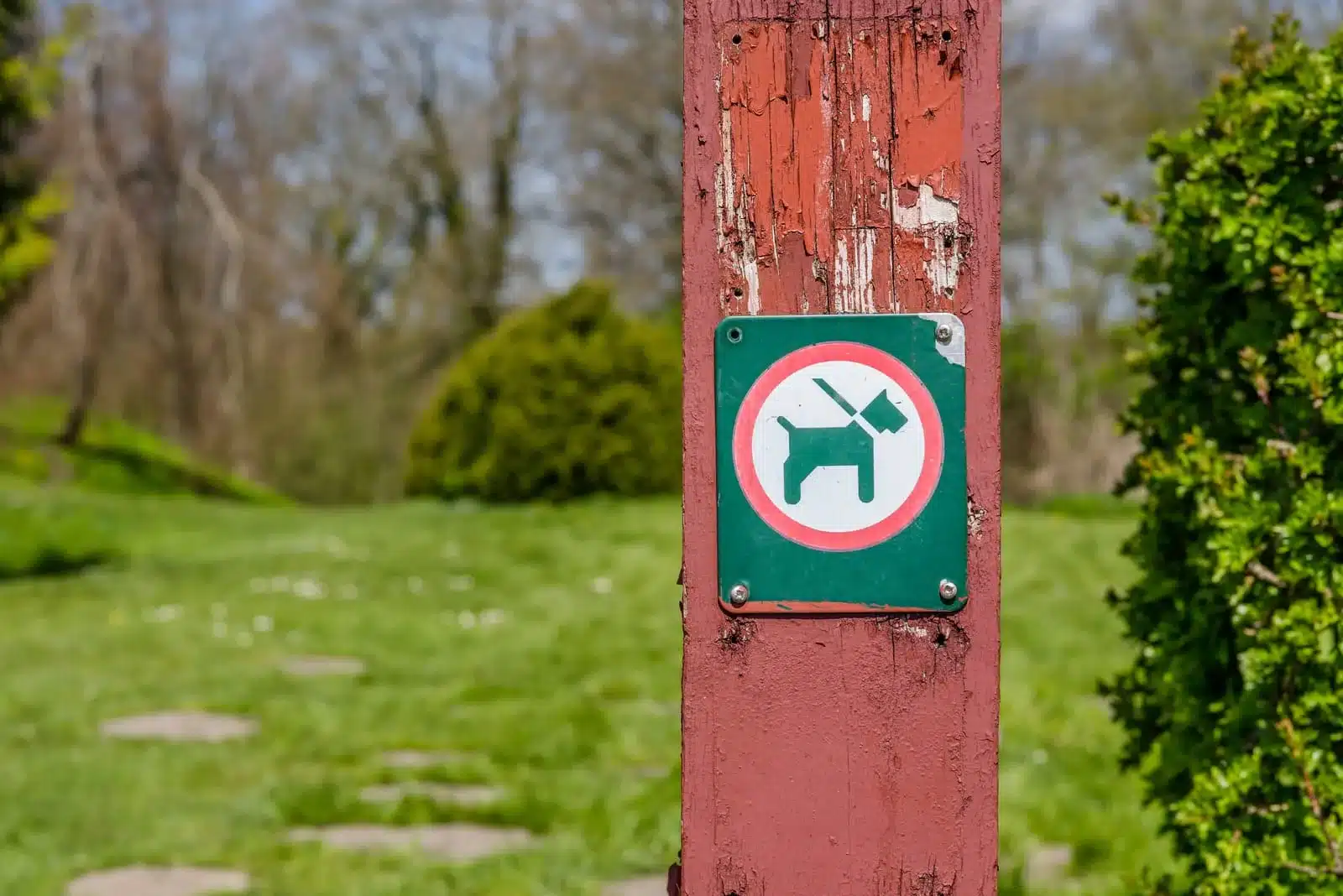Do You Have to Have Your Dog on a Leash in Texas?
Texas is home to millions of dog lovers, but when it comes to public welfare, the law expects pet owners to keep their animals safely controlled. While Texas does not have a statewide “Leash Law,” most counties and municipalities have local ordinances requiring dogs to be on a leash when off their owner’s property.
Failing to leash your dog or follow local ordinances can expose you to fines, lawsuits, and even criminal charges, especially if someone gets bitten by your dog. Here’s what Texas dog owners need to know to stay compliant and protect themselves from liability.
What You Need to Know About Texas “Leash Laws”
Texas law does not impose a blanket leash requirement at the state level. However, individual cities and counties, including Houston, Dallas, San Antonio, and Austin, have enacted local ordinances that require dogs to be:
- Leashed in public places
- Confined to a fenced yard or enclosure
- Under control via voice or remote training (in limited cases)
In Houston, for example, dogs must be leashed at all times when off their owner’s property unless they are in a designated off-leash area, such as a dog park. The same applies in many surrounding municipalities and neighborhoods.
Local leash laws are typically enforced by animal control officers or local police and are in place to reduce the risk of dog bites, traffic accidents, or property damage.
Dulce Sanchez
I have had the best experience with this Law Firm . RTR Law. Working closely with Kathy Stearns, she communicates in a timely manner, answers all my questions necessary even the repetitive ones LOL. I would definitely recommend to all my friends and family. Nicholas Thompson has also been amazing and I am happy that I choose RTR Law as my representatives for my case.
What Happens if You Violate “Leash Laws” in Texas?
Failing to follow local leash ordinances in Texas isn’t just a safety concern, it can lead to significant legal and financial consequences. These laws are in place to protect the public from avoidable injuries caused by animals and necessary for your pet’s best interest as well.
Violating leash laws in Texas can result in:
- Fines ranging from $100 to $500 or more, especially for repeat offenses or if the violation causes harm.
- Civil liability if your unleashed dog injures a person, another pet, or causes property damage.
- Criminal charges in more severe cases, particularly if the dog was previously labeled dangerous or has a history of aggression.
Texas follows a modified version of the “One Bite Rule,” which doesn’t necessarily give a dog “one free bite.” Instead, it holds owners liable if they knew (or should have known) that their dog had dangerous tendencies, based on a prior bite, aggressive behavior, or breed characteristics. If a dog bites someone and the owner had warning of aggression, or ignored leash laws, this can significantly strengthen a victim’s legal claim.
In short, failing to leash your dog can expose you to both financial and criminal penalties, especially if someone is hurt. Following leash laws protects others and protects you from avoidable liability.
Do Service Animals Have to Be on a Leash in Texas?
Service animals are held to high standards in public places, and their handlers are legally responsible for ensuring they remain manageable. Both Texas law and federal regulations set specific guidelines on how service animals must behave to ensure public safety.
Under Texas law and the Americans with Disabilities Act (ADA), service animals must generally be harnessed, leashed, or tethered while in public, unless doing so interferes with the animal’s ability to perform trained tasks or in cases that doing so would be impossible due to the handler’s disability. In such cases, the handler must maintain effective control of the animal through voice commands, hand signals, or other reliable methods.
If a service animal bites someone, the handler may still be held liable for the resulting injuries just like any other dog owner. The ADA does not exempt service animals from local animal control laws or civil liability. If the animal has shown aggressive tendencies before, or the handler fails to maintain control, they could face civil lawsuits for negligence and, in some cases, removal of the animal from public spaces.
Businesses are allowed to ask two limited questions:
- Is the dog a service animal required because of a disability?
- What work or task has the dog been trained to perform?
They may not ask for documentation or inquire about the person’s disability, but if a service animal becomes aggressive or bites someone, the handler’s rights do not override public safety.
Can I Leave My Dog Tied Up Outside in Texas?
Texas law strictly regulates how and when a dog can be tethered outdoors, especially if the animal is left unattended. Under Texas Health and Safety Code § 821.102, it is illegal to:
- Use a tether shorter than 10 feet or less than five times the dog’s body length.
- Restrain a dog using chains that are too heavy or impede movement.
- Leave a dog outside in unsafe weather conditions, such as freezing temperatures, heat advisories, or storms.
- Tether a dog without access to adequate shelter, clean water, and shade.
- Leave a tethered dog unattended, which can pose a safety risk to both the animal and the public.
Violating these laws is a Class C misdemeanor for the first offense and escalates to a Class B misdemeanor for repeat violations.
Additionally, if a tethered and unattended dog bites someone, the owner may face civil liability and potentially criminal penalties, especially if the dog was previously known to be aggressive. In these cases, Texas’s “one bite rule” may apply, meaning, if the owner knew or should have known the dog had dangerous tendencies, they can be held liable for any harm caused.
Leaving a dog tied up and unsupervised doesn’t just put the dog at risk, it puts you at risk for lawsuits and criminal charges if something goes wrong. When in doubt, always supervise your dog and follow local animal control ordinances.
How Do You File a Dog Bite Lawsuit in Texas?
If you’ve been bitten by a dog in Houston or the surrounding area, you may be eligible to file a personal injury lawsuit against the dog’s owner, especially if they violated leash or control laws.
To file a successful claim, you typically must show that:
- The owner was negligent in controlling the dog.
- The dog had a known history of aggression (under the “one bite rule”).
- A leash law or tethering rule was violated.
- You sustained injuries and damages as a result.
A skilled attorney can gather police reports, medical records, and witness statements to build a strong case on your behalf.
Get Legal Help After a Dog Bite Injury and Talk to a Dog Bite Attorney Today
Dog bite injuries can lead to serious infections, nerve damage, scarring, and emotional trauma. Victims may be entitled to compensation for:
- Emergency medical bills and follow-up treatment
- Lost wages due to time off work
- Pain and suffering
- Disfigurement or permanent scarring
- Emotional distress
Don’t assume the insurance company will do what’s fair. Let an experienced personal injury attorney at RTRLAW fight for the compensation you deserve.
Whether you were bitten by a neighbor’s dog or your own pet was injured due to another owner’s negligence, RTRLAW is here to help. Our Houston legal team has decades of experience holding negligent pet owners accountable.
Call us at 1-833-HIRE-RTR or visit our Houston office to schedule a free, no-obligation consultation. We’ll review your case, explain your rights, and fight to recover what you’re owed.
Revision History:
- Jan 13, 2026 at 6:48 am by RTRLAW (displayed above)
- Jan 13, 2026 at 6:48 am by victor


 CALL US NOW
CALL US NOW TEXT US NOW
TEXT US NOW

























